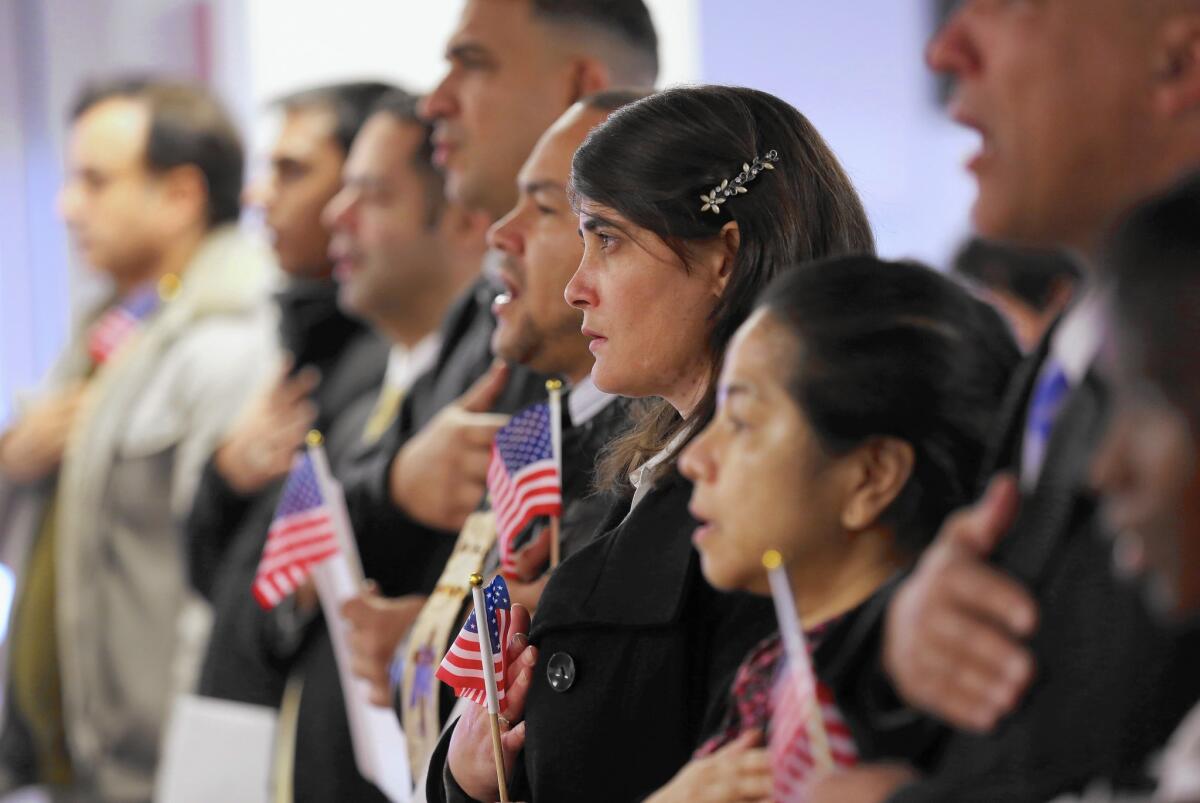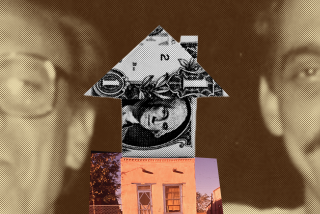Readers React: In defense of dual citizenship

To the editor: You tackled dual citizenship, a difficult topic without easy solutions. However, having dual citizenship is very similar to having parents. Asking someone to have only one parent because of logistical problems or possible fears is unjustified and denies people’s constitutional and human rights. (“The problem of dual citizenship,” Editorial, Dec. 26)
The prevalence of dual citizenship indicates that the concept of “one person, one country” is becoming antiquated. Will we move from dual to world citizenship? Not in the near future, as fear continues to cause us to view with suspicion the people on the other side of the river or the ocean.
Maybe someday we’ll view each other as members of a very large nation — the human nation.
Domenico Maceri, San Luis Obispo
..
To the editor: I thought that we were addressing citizenship, on and on, and boom, we found ourselves in “nationality.” Citizenship and nationality are different concepts altogether and not conterminous, though they are somewhat related.
In this way I can say that I am a U.S. citizen and Haitian by nationality. My accent, my good and bad habits, my thoughts, my everything have been described in the past 50 years by American friends as un-American, yet they persist. I do not like American football or apple pie; I do like soccer and pain patate.
I visit Haiti regularly, and most of my countrymen assume that I am Haitian, which I am. I am not an American, but I am a U.S. citizen — big difference.
Patrick Bellegarde-Smith, Milwaukee
..
To the editor: The Times’ simplistic point of view indicates a lack of understanding of the difference between loyalty and citizenship. Citizenship resides in a piece of paper (your passport). Loyalty resides in the heart of the person. Regardless of the law, people will feel loyalty depending on the circumstances.
I am a citizen of two countries. I was born overseas, and I moved to the U.S. at age 25. I hold two passports (one expired). My native country considers me a citizen.
My pride in being a U.S. citizen is expressed by my voting in every election, serving on juries and working on political campaigns. This is more than most U.S.-born citizens do.
George Singer, Rancho Santa Margarita
..
To the editor: I recently became a dual citizen. I don’t see a problem with it, but maybe situations ought to be reviewed on a case-by-case basis. In my case I’m half American and half Thai. My dad is American and my mom was Thai.
In my opinion, no one can deny that I am both American and Thai. Both countries have always been peaceful toward each other, so why shouldn’t I become a dual citizen?
Sure, there might be a few complications, but life is not perfect.
Dakota Patterson, Nakhon Pathom, Thailand
..
To the editor: The idea of a nation state is barely 500 years old. Before the 1500s, people in Europe, for example, did not consider themselves to be citizens of a nation.
Maybe the time has come to lay the idea of a nation state to rest. We have a global economy and global warming, so why not global citizenship?
Sorry, but your editorial is a bit provincial.
Jürgen Kleist, Plattsburgh, N.Y.
Follow the Opinion section on Twitter @latimesopinion
More to Read
A cure for the common opinion
Get thought-provoking perspectives with our weekly newsletter.
You may occasionally receive promotional content from the Los Angeles Times.






